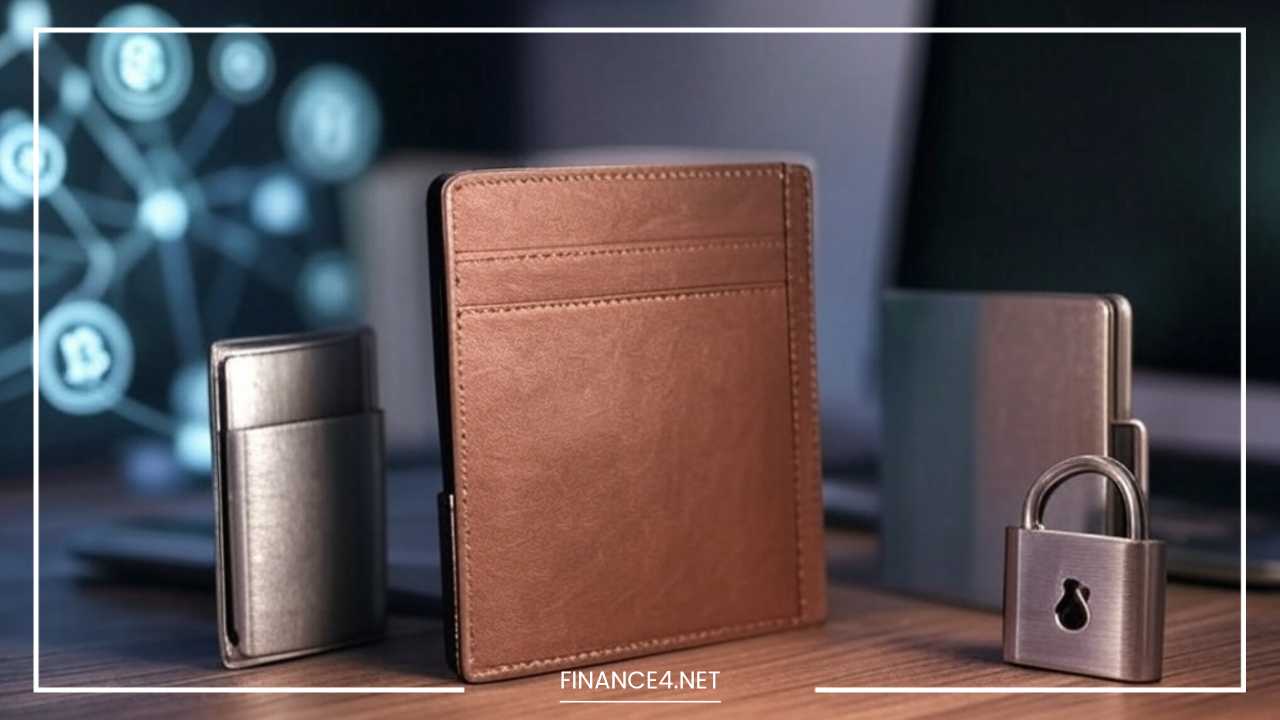Best Ways to Store Your Private Keys

Store Your Private Keys
The Fort Knox of Crypto: Best Ways to Store Your Private Keys
In the rapidly evolving world of cryptocurrency, your private keys are the ultimate safeguard of your digital wealth.
These cryptographic keys are more than just random strings of numbers and letters; they are the key to your entire crypto portfolio, offering you sole access and control over your digital assets.
Just like a physical key that opens your home or car, losing or exposing your private keys can result in irreversible loss, theft, or both. Therefore, safeguarding these keys is paramount for every crypto owner.
While cryptocurrency promises financial freedom and new opportunities, it also comes with inherent risks—chief among them, the risk of losing your private keys or having them compromised.
This article will explore the most effective and secure methods for storing private keys, helping you make informed decisions about the security of your cryptocurrency holdings.
In addition, we’ll examine the various storage options available, the pros and cons of each, and the best practices to follow to protect your keys from theft or loss.
Understanding the Importance of Private Key Security
Before diving into specific storage solutions, it’s crucial to understand why private key security is so important in the cryptocurrency ecosystem.
1. Irreversible Loss
One of the most significant differences between cryptocurrency and traditional financial systems is that transactions made with crypto are irreversible.
In the case of a theft or an error, there’s no central authority or “bank” to turn to for recourse. If you lose your private keys, or if they are stolen, there is no way to reverse or recover the loss. Your funds are effectively gone forever.
Unlike a bank account, where a lost password or security breach might allow you to recover your funds, cryptocurrencies operate on a decentralized network with no customer support or recovery mechanisms.
Therefore, the onus of securing your assets lies entirely with you.
2. Direct Access to Your Crypto
Private keys are the digital equivalent of a safe deposit box key. They provide direct access to your crypto holdings. P
ossessing your private keys means you can manage and transfer your assets freely. On the other hand, if someone else gets access to your private keys, they have full control over your assets, and there’s little recourse for recovery.
Because of this, you must safeguard your private keys just as you would any high-value asset, such as the password to your bank account or the combination to a vault.
3. A Target for Cybercriminals
The exponential rise in the value and popularity of cryptocurrencies has made private keys a prime target for hackers and cybercriminals.
Malware, phishing, and social engineering attacks are increasingly common, and hackers are constantly finding new ways to exploit weaknesses in cryptocurrency wallets and their users’ security practices. This makes the security of your private keys even more critical.
Cybercriminals frequently target individuals who store their private keys in insecure locations, like on their computers, smartphones, or online exchanges.
Once they gain access to the keys, they can steal the funds quickly, often with no way to track or reverse the transaction.
4. Single Point of Failure
The way you store your private keys becomes your single point of failure. If your storage solution is compromised—whether through physical theft, cyberattacks, or an overlooked backup—you risk losing everything.
A single vulnerability in your storage method can result in the complete loss of your crypto holdings, which is why finding a secure solution is essential.
Types of Storage Methods for Private Keys
When it comes to storing private keys, there are two main categories: hot storage and cold storage.
Each has its own pros and cons, and the best option for you will depend on your specific needs and how you plan to use your crypto assets.
1. Hot Storage: Convenience at the Cost of Security
Hot storage refers to any storage method where your private keys are stored on a device that is connected to the internet.
While hot storage offers convenience, especially for users who frequently make transactions, it also exposes your private keys to online threats, including hackers, malware, and phishing attacks.
Software Wallets (Desktop and Mobile)
Software wallets are applications that you can install on your computer or smartphone to store and manage your private keys.
These wallets are generally easy to use and are available for free or at a minimal cost. They’re popular among cryptocurrency users who make regular transactions.
- Pros:
- Convenience: Easy to use and access from your computer or phone.
- Free or Low-Cost: Many software wallets are free or inexpensive to use.
- Fast Access: You can quickly send and receive transactions.
- Cons:
- Vulnerability to Malware and Phishing: If your device is compromised by malware or a phishing attack, your private keys could be stolen.
- Risk of System Failure: Operating system vulnerabilities or issues with your device could expose your keys to potential loss.
- Not Ideal for Large Amounts of Crypto: Software wallets are better for small to medium holdings, but storing large amounts can be risky.
- Best Practices:
- Use reputable software wallets from trusted developers.
- Enable two-factor authentication (2FA) for extra protection.
- Keep both your wallet software and operating system up to date.
- Use strong, unique passwords and avoid storing large sums of crypto in hot wallets for extended periods.
Web Wallets (Exchange and Online Wallets)
Web wallets are accessed through a web browser. Many cryptocurrency exchanges, such as Coinbase, Binance, or Kraken, provide web wallets for users to store their assets.
While these wallets are convenient, they come with the significant drawback that you don’t actually control your private keys—the exchange does.
- Pros:
- Access from Any Device: You can access your funds from any device with an internet connection.
- Convenient for Trading: Perfect for those who trade frequently, as they’re integrated with exchange platforms.
- Cons:
- Vulnerable to Hacks: Exchanges are a frequent target for cybercriminals. If the exchange gets hacked, your funds could be stolen.
- No Control Over Private Keys: With web wallets, you don’t have control over your private keys—only the exchange does. This makes your crypto vulnerable if the exchange is hacked or shuts down.
- Best Practices:
- Use web wallets from reputable and well-secured exchanges.
- Enable 2FA and use strong, unique passwords.
- Avoid keeping large amounts of crypto in exchange wallets for extended periods.
Browser Extension Wallets
Browser extension wallets, like MetaMask, are plugins you add to your browser to interact with the cryptocurrency ecosystem.
These wallets are particularly useful for decentralized applications (dApps) and making transactions directly from your browser.
- Pros:
- Convenient: Ideal for interacting with decentralized finance (DeFi) applications or dApps.
- Easy Access: Provides quick access to your crypto for trading and transacting.
- Cons:
- Vulnerable to Phishing Attacks: Browser extensions are prone to malicious browser extensions, phishing attacks, or malicious websites that impersonate legitimate services.
- Potential for Browser Exploits: If your browser is compromised, your wallet may be too.
- Best Practices:
- Only use trusted and well-audited wallet extensions.
- Keep your browser and wallet extension up to date.
- Be wary of phishing websites and unsolicited wallet prompts.
2. Cold Storage: Prioritizing Security Above All Else
Cold storage refers to storing private keys offline, away from any internet-connected devices. Because cold storage is not vulnerable to online threats, it is widely considered the most secure way to store private keys.
Cold storage is ideal for long-term holders who don’t require immediate access to their crypto assets.
Hardware Wallets
Hardware wallets are physical devices designed specifically to store private keys offline. These devices provide a secure method for storing private keys and allow users to sign transactions without exposing their keys to the internet.
- Pros:
- Highly Secure: Immune to online hacking attempts, malware, and phishing attacks.
- Easy to Use for Transactions: Though offline, hardware wallets typically come with software that makes it easy to sign transactions securely.
- Secure Backup Options: Many hardware wallets come with a recovery seed phrase that allows you to recover your funds if the device is lost or damaged.
- Cons:
- Costly: Hardware wallets are not free; they come with a price tag.
- Requires Physical Access: To access or move your crypto, you must have the physical device, which can be inconvenient for urgent transactions.
- Potential for Hardware Failure: Like any physical object, hardware wallets can malfunction, so you must keep a secure backup of your recovery phrase.
- Best Practices:
- Purchase hardware wallets directly from the manufacturer to avoid tampered devices.
- Store the recovery seed phrase securely in a separate location.
- Use a strong PIN or password to protect the device.
- Keep the firmware up to date to ensure it remains secure.
Paper Wallets
A paper wallet is a piece of paper on which your private keys and public addresses are printed. It’s an inexpensive, offline method for storing keys, making it resistant to online hacking attempts.
- Pros:
- Offline Storage: Completely offline and resistant to online threats.
- Inexpensive: Paper wallets are a cost-effective way to store private keys.
- Simple to Use: Ideal for users who want a straightforward and inexpensive storage solution.
- Cons:
- Vulnerable to Physical Damage: Fire, water, and physical wear can damage the paper wallet, potentially causing you to lose access to your crypto.
- Inconvenient for Frequent Transactions: Not ideal for users who need quick and easy access to their funds, as it requires manual input.
- Risk of Theft: Paper wallets can be easily stolen if not stored securely.
- Best Practices:
- Generate paper wallets offline using reputable software.
- Store them in a fireproof and waterproof location.
- Make multiple copies and store them in different secure locations.
- Never photograph or scan the paper wallet.
Metal Seed Phrase Storage
For an added layer of protection, some users engrave or stamp their seed phrases onto metal plates. This method is an upgrade from paper wallets and offers better durability against the elements.
- Pros:
- Highly Durable: Resistant to fire, water, and corrosion, making it a long-lasting backup solution.
- Long-Term Security: Perfect for those who want to secure their crypto holdings for the long term without worrying about deterioration.
- Cons:
- Specialized Equipment: Engraving or stamping requires specialized tools or services.
- Can Be Expensive: Metal plates and engraving services are more costly than paper wallets.
- Best Practices:
- Use high-quality metal plates that can withstand extreme conditions.
- Accurately engrave or stamp the seed phrase.
- Store the metal plate in a secure, discreet location.
Brain Wallets
A brain wallet involves memorizing your private key or recovery phrase. The idea is that by committing your keys to memory, you eliminate the risk of physical theft or online exposure.
- Pros:
- No Physical Storage Required: No need to worry about fire, water, or theft since everything is in your mind.
- Cons:
- Highly Risky: People are prone to forget complex seed phrases, and forgetting could result in the permanent loss of your crypto holdings.
- Vulnerable to Coercion or Memory Loss: If you forget your phrase or are forced to reveal it, you risk losing control of your funds.
- Best Practices:
- Generally discouraged due to high risk.
- If used, ensure the phrase is complex enough to be secure but memorable enough to recall.
- Consider using a passphrase in addition to the seed phrase to add an extra layer of security.
Multi-Signature Wallets (Multi-Sig)
Multi-signature wallets require multiple private keys to authorize a transaction. This is ideal for situations where more than one person is responsible for the wallet, such as businesses or joint accounts.
- Pros:
- Enhanced Security: Reduces the risk of a single point of failure, ensuring that multiple people or devices need to sign off before a transaction is made.
- Ideal for Shared Wallets: Perfect for families, businesses, or organizations.
- Cons:
- Complex Setup: Requires coordination between multiple parties or devices.
- Can Be Expensive and Time-Consuming: More complex to set up and manage compared to a single-key wallet.
- Best Practices:
- Distribute keys securely among trusted individuals or devices.
- Use reputable multi-sig wallet software to minimize risks.
- Establish clear and secure rules for transaction authorization.
Key Considerations for Choosing a Storage Method
When deciding how to store your private keys, several factors should influence your choice:
- Security vs. Convenience: Hot storage offers convenience but exposes your keys to more risks. Cold storage, on the other hand, offers superior security but can be less convenient for frequent transactions.
- Frequency of Transactions: If you transact frequently, a hot wallet may be necessary for ease of access. However, for long-term storage, cold wallets like hardware wallets or paper wallets are recommended.
- Amount of Crypto: The larger your holdings, the more crucial it is to choose a secure storage method. Consider using a combination of cold and hot wallets, with large amounts stored in cold storage for security.
- Technical Expertise: Choose a storage method that aligns with your technical comfort level. Some methods, like multi-sig and hardware wallets, may require more technical knowledge.
- Backup and Recovery: Always ensure that you have secure backup systems in place, especially for cold storage options. Store recovery phrases in separate, secure locations.
- Diversification: Don’t put all your eggs in one basket. By diversifying your storage methods, you can reduce the risk of losing your crypto holdings.
Final Thoughts
The security of your private keys is the bedrock of cryptocurrency ownership. If your private keys are compromised or lost, you risk losing access to your digital wealth—often with no recourse for recovery.
By carefully selecting the right storage method for your needs and understanding the risks associated with each option, you can significantly enhance the security of your assets.
Whether you prioritize convenience with hot storage or the robust security of cold storage, it’s essential to follow best practices and stay informed about the latest security threats.
Your private keys are your responsibility, and taking proactive measures to protect them will ensure that you can enjoy the benefits of cryptocurrency with confidence and peace of mind.



